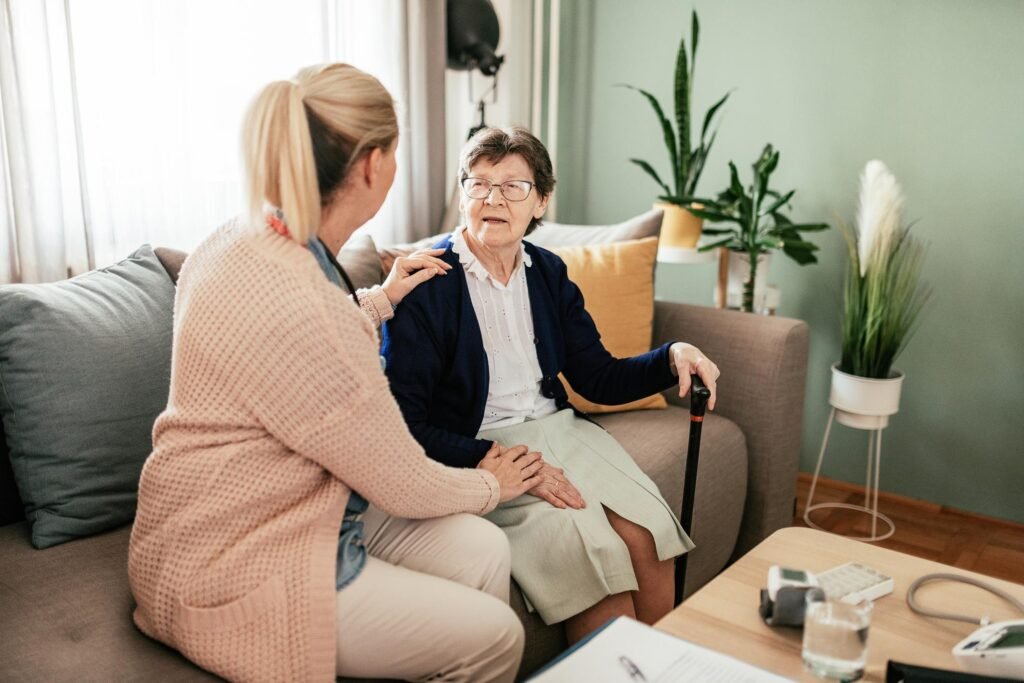As the population of elderly individuals continues to grow, the demand for effective and compassionate home care for elderly solutions is more pressing than ever. In-home care has emerged as a leading option for those seeking to enhance the quality of life for seniors. This article explores the myriad ways in which in-home care can significantly improve the lives of elderly individuals, offering them independence, comfort, and personalized support.
Understanding In-Home Care
In-home care refers to a range of health and personal support services provided in the elderly person’s own home. These services can include medical care, personal assistance, and companionship. Unlike institutional settings such as nursing homes or assisted living facilities, in-home care allows individuals to remain in a familiar environment, which is often crucial for their emotional and psychological well-being.
Personalized Care Plans
One of the primary benefits of in-home care is the development of personalized care plans. Each elderly individual has unique needs and preferences, and in-home care allows for the creation of tailored plans that address these specific requirements. Care plans are designed in collaboration with the individual, their family, and healthcare professionals, ensuring that all aspects of the individual’s well-being are considered.
Customized Support
In-home care provides customized support that can adapt to the changing needs of the elderly individual. Whether the need is for assistance with daily living activities such as bathing and dressing, or for specialized medical care, in-home care enhance givers are trained to offer the appropriate level of support. This flexibility ensures that the care provided remains relevant and effective throughout the individual’s life.
Enhancing Comfort and Quality of Life
Remaining in a familiar environment has been shown to enhance comfort and overall quality of life. In-home care allows elderly individuals to continue living in their own homes, surrounded by personal belongings and cherished memories. This familiar setting can reduce feelings of anxiety and depression, which are common among those who move to institutional care facilities.
Maintaining Independence
A significant advantage of in-home care is the emphasis on maintaining independence. Unlike institutional care, where routines and schedules are often rigid and predetermined, in-home care provides the flexibility for individuals to continue with their daily routines as much as possible. Caregivers assist with tasks rather than taking over, allowing seniors to retain a sense of autonomy and control over their lives.
Companionship and Emotional Support
In addition to physical care, in-home care enhance offers essential companionship and emotional support. Loneliness and social isolation can have detrimental effects on elderly individuals’ mental and physical health. In-home caregivers provide not only practical assistance but also meaningful interaction, which can help alleviate feelings of loneliness and contribute to a more fulfilling life.
Encouraging Social Engagement
Caregivers often assist with facilitating social activities and engagement, helping seniors to stay connected with friends and family. This might include organizing visits, accompanying individuals to social events, or simply engaging in conversation and activities that the individual enjoys. Social interaction is crucial for mental well-being and can enhance overall life satisfaction.
Medical Management and Safety
Medical management is another critical component of in-home care enhancement. Caregivers can assist with managing medications, coordinating with healthcare providers, and monitoring health conditions.
Enhanced Safety Measures
In-home care also includes implementing enhanced safety measures to reduce the risk of accidents and injuries. Caregivers are trained to identify and address potential hazards within the home, such as fall risks, and to ensure that the living environment is safe and conducive to the individual’s needs.
Cost-Effective Care Solutions
By providing personalized care and focusing on preventive measures, in-home care can reduce the need for more intensive medical interventions and hospitalizations. Additionally, the ability to remain at home can avoid the high costs associated with institutional living.
Flexible Payment Options
Many in-home care services offer flexible payment options that can accommodate various budgets. These options may include private pay, long-term care insurance, or government programs. By exploring these options, families can find a financial solution that works for their specific situation.
Support for Family Caregivers
In-home care also provides valuable support for family caregivers. Family members often take on the role of primary caregivers, which can be physically and emotionally demanding. Professional in-home caregivers can offer respite and assistance, allowing family members to take breaks, manage other responsibilities, and reduce caregiver burnout.
Training and Resources
In-home care agencies often provide training and resources for family caregivers, helping them to better understand and manage their loved one’s care needs. This support can enhance the quality of care provided and improve the overall caregiving experience for both the individual and their family.
Conclusion
In-home care offers a multitude of benefits for elderly individuals, from personalized care plans and enhanced comfort to medical management and emotional support. By allowing seniors to remain in their own homes while receiving tailored care, in-home care significantly improves their quality of life, independence, and overall well-being. As the demand for elder care solutions continues to grow, in-home care stands out as a compassionate and effective choice for families seeking the best possible support for their loved ones.



More Stories
Your Pharma Future Starts Here: Oasis Bio Bloom in Haryana
Top PCD Pharma Franchise Companies in Bihar – Join the Best
Natural vs. Synthetic Estrogen Therapy: What’s Best for You?